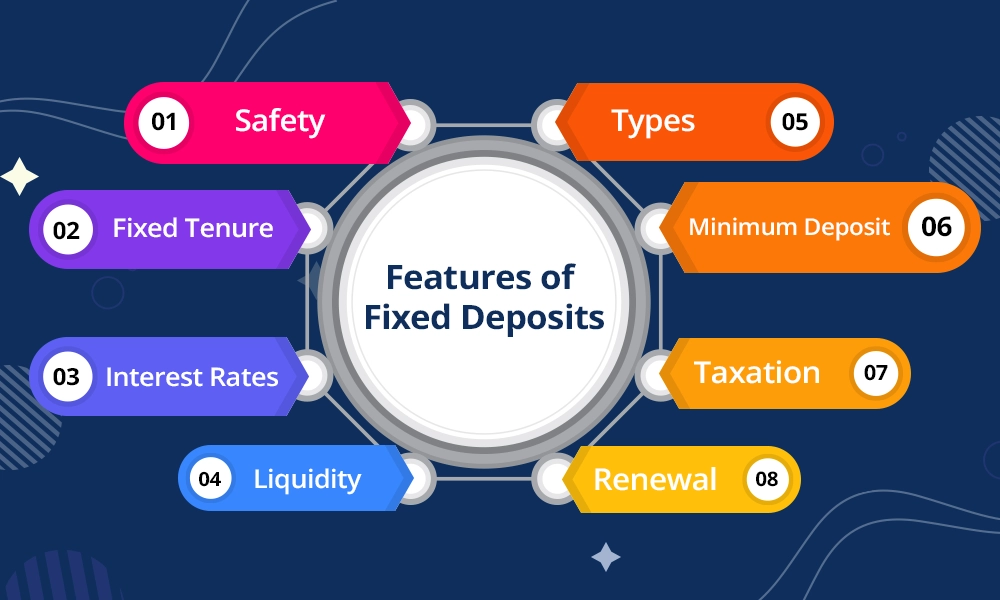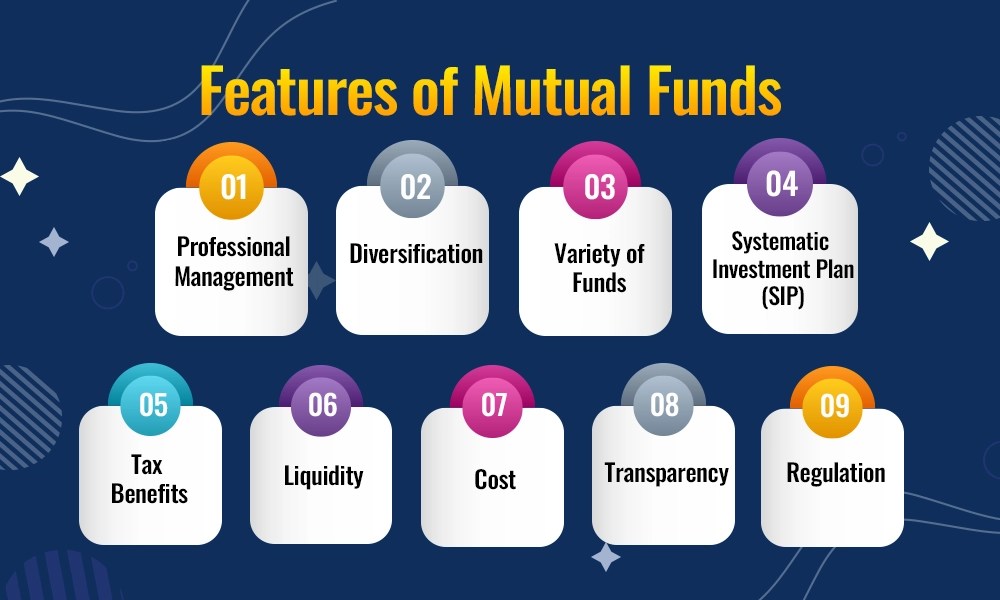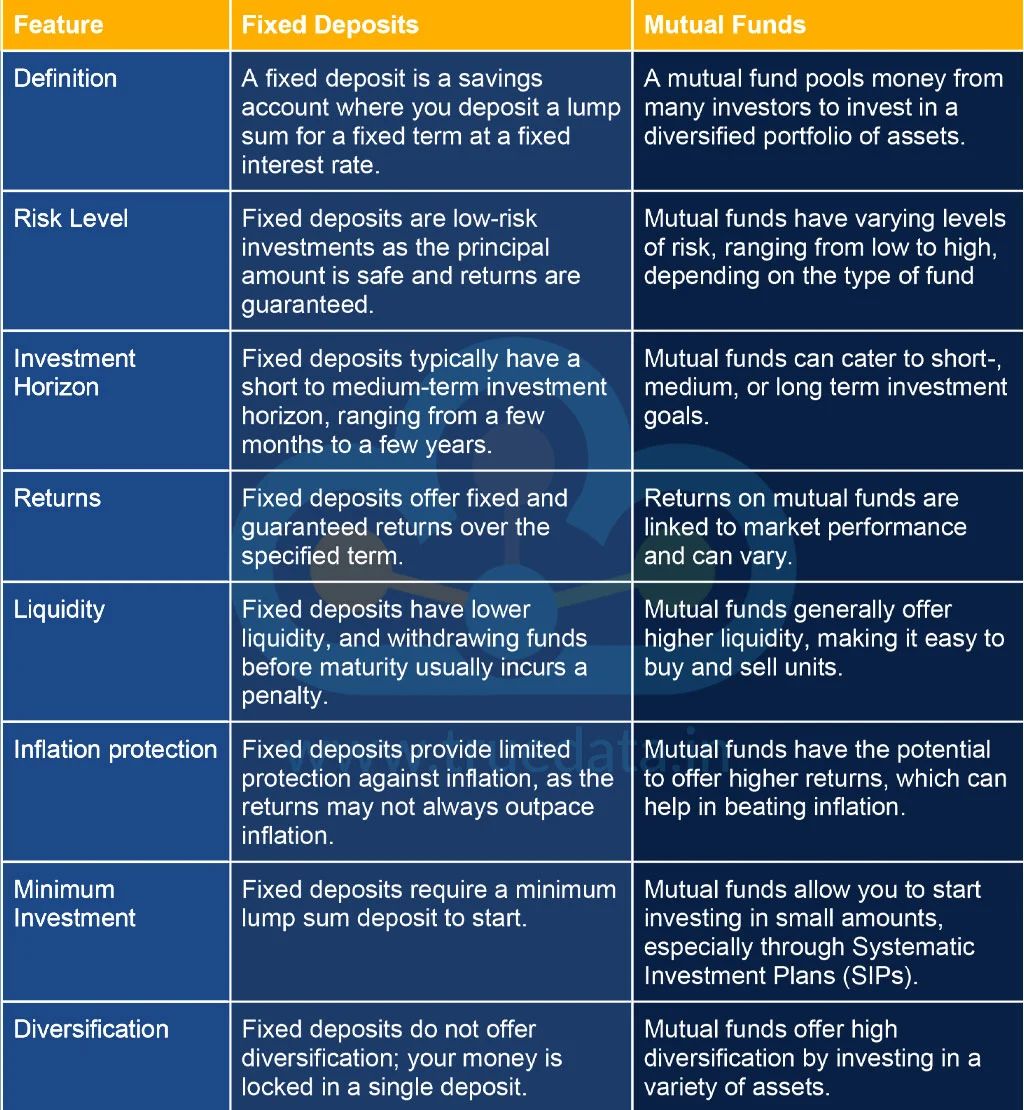
What are the two most common types of investments that you will find in any investment portfolio? The answer is fixed deposits and mutual funds. But if you have to invest in FD or mutual funds, which one do you pick and what are the factors that you consider? Check out this blog to learn a few key details about mutual funds and fixed deposits and how to choose between them.

Fixed deposits are the savings investment option offered by banks. These investments come in varied tenures ranging from 7 days to 10 years. Investors get a fixed interest on the deposit amount which can vary depending on factors like the bank guidelines, tenure of fixed deposit, age of the depositor, etc. This interest is credited to the depositor either monthly, quarterly, or annually as per the bank policies. FDs are considered a safe investment because they offer guaranteed returns and are insured up to Rs.5,00,000 under the Deposit Insurance and Credit Guarantee Corporation (DICGC) scheme of the Reserve Bank of India (RBI). This makes it a popular investment choice among investors looking for stable returns without taking on much risk.

Some of the top features of fixed deposits include,
Interest Rates - FDs offer higher interest rates than regular savings accounts, typically varying based on the bank and tenure.
Fixed Tenure - Fixed deposits have a defined tenure and can range from a few months to several years.
Safety - FDs are considered safe investments because they are insured up to Rs. 5,00,000 per depositor by the Deposit Insurance and Credit Guarantee Corporation (DICGC).
Liquidity - FDs come with a lock-in period till maturity and while FDs offer stable returns, they usually have penalties for withdrawing money before maturity (premature withdrawal).
Types - There are different types like Regular FDs, Tax-saving FDs (which offer tax benefits under Section 80C of the Income Tax Act), senior citizen FDs (which offer higher interest rates for senior citizens), Cumulative and Non-Cumulative FDs, etc.
Minimum Deposit - Banks have a minimum deposit amount requirement, which varies from bank to bank.
Taxation - Interest earned on FD is taxable and liable for TDS (Tax Deducted at Source) if interest exceeds Rs. 40,000 in any financial year (Rs. 50,000 for senior citizens).
Renewal - FDs can be automatically renewed for another term or withdrawn upon maturity.

A mutual fund is a type of investment where many people pool their money together to invest in a variety of assets like stocks, bonds, and other securities. This pooled money is managed by professional fund managers who decide where to invest the money to achieve the best returns. Mutual funds offer an easy way for individuals to invest in a diversified portfolio without needing to pick and manage investments themselves. Mutual funds come in various types, such as equity funds (which invest in stocks), debt funds (which invest in bonds), and hybrid funds (which invest in a mix of both). They can be a good option for people looking to grow their money over time while spreading risk across different investments.

The top features that make mutual funds a favoured investment option include,
Professional Management - Expert fund managers handle the investment decisions, aiming to maximize returns.
Diversification - Mutual funds invest in a mix of stocks, bonds, and other securities, spreading risk across different assets.
Variety of Funds - There are different types of mutual funds such as equity funds (stocks), debt funds (bonds), hybrid funds (a mix of stocks and bonds), and more, catering to various investment goals and risk appetites.
Liquidity - Most mutual funds are easy to buy and sell, offering liquidity, meaning you can convert your investment to cash relatively quickly.
Systematic Investment Plan (SIP) - Investors can choose to invest a fixed amount regularly (monthly, quarterly), making it easier to invest small amounts over time.
Cost - Mutual funds have fees such as expense ratios and management fees, which cover the cost of managing the fund.
Tax Benefits - Certain mutual funds, like Equity Linked Savings Schemes (ELSS), offer tax benefits under Section 80C of the Income Tax Act.
Transparency - Mutual funds provide regular updates and disclosures about the portfolio and performance, helping investors stay informed.
Regulation - Mutual funds are regulated by the Securities and Exchange Board of India (SEBI) which ensures investor protection and adherence to guidelines.
After understanding the basic details about fixed deposits and mutual funds, let us now look at their core differences to help investors make informed decisions.
Key Differences Between FD & MF


Investing in mutual funds vs fixed deposits is like choosing between apples and oranges. They are investment products that cater to different classes or types of investors and bring different highlights to an investment portfolio. Fixed deposits are a safer option with guaranteed returns and low risk, making them suitable for conservative investors looking for stable income. However, they may not always keep up with inflation. On the other hand, mutual funds offer the potential for higher returns and better inflation protection but come with varying levels of risk, as their performance is tied to market fluctuations. Mutual funds are better suited for those willing to accept some risk for the possibility of higher returns and who are looking for a diversified investment over the medium to long term. Therefore, the choice between fixed deposits and mutual funds should be after considering factors like investment goals, investment horizon as well as risk-return perceptions.
Mutual funds are market-linked investments which means they are like a double-edged sword that can either make or break the overall investment portfolio. Fixed deposits offer stable but moderate returns along with capital preservation. Therefore, an ideal investment portfolio should include both fixed deposits and mutual funds to balance out the risks of each of them while benefiting from the advantages that they each bring to the table.
We hope this article was helpful in providing a better understanding of fixed deposits and mutual funds thereby aiding in your investment decisions.
Let us know what is your preferred investment option or if you need details about similar investment options to build your investment portfolio and we will help you understand them in detail.
Till then Happy Reading!
Read More: Index Funds vs ETFs - How do you choose?

Mutual fund investments have simplified greatly with just a tap on your smartpho...

Mutual fund investments have simplified greatly with just a tap on your smartpho...

Introduction For the longest time, investment in stock markets was thought to b...